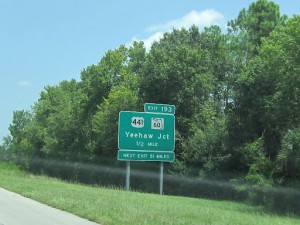For the past three decades I’ve been looking for novels and stories that illuminate the power of music. Rhythm linked with melody seems to go all the way to the depths of the human soul. This astonishes me. I have loved music all of my life. My father played every form of classical music in our house when I was growing up. And he played his music loud. By the time I was four it was profoundly comforting listening to everything from opera to string quartets or solo piano at volumes
well in excess of five on a hi-fi system. During the heyday of the audiophile in the late ’60s and early ’70s, my dad built himself a monstrous stereo system using state-of-the-art electronics and Scandinavian components.I got to hear Mahler and Tchaikovsky so loud and so pure they went all the way into me and moved me forever.
Pop music touched me early on as well. I fell in love with The Beatles by the time I was six (summer of 1964) and its been clear sailing since. In 1971 my older cousin introduced me to Elton John, Crosby, Stills & Nash, Cat Stevens, and Joni Mitchell. A close friend in junior high school turned me on to The Jackson 5 and Stevie Wonder. My 8th grade girl friend got me to listen to The Allman Brothers Band. And when my younger brother received The Grateful Dead’s Europe ’72 for Christmas in 1973 we were hooked forever on improvisational music and the idea that guitars, drums, bass and keyboards could be blues, jazz, rock, country, and even classical all at once. By the time my ears and brain fully grew to be able to integrate and differentiate sound simultaneously, it seemed to me that music was as much a connector to spiritual ecstasy and joy as it was mere entertainment or just something that might give one a reason to do the twist.
Our emotions at any given moment are like surfaces in the dimension of awareness that precedes language. The way I see it, when music reaches inside of us, when the spirit of sound filters and flows through our ears and skin, the vibration and integration of beat and melody and song in the depths (and shallows) of the listener has the potential to deeply color and touch that dimension.
Sometimes it seems to me that music is what allows us to most fully feel our souls, to know that we are able to feel the entire universe all at once. By soul I don’t mean some mystical or spiritual force. I simply mean the essence of who we are summed into the moment — whatever emotions we’re feeling; whatever ideas we’ve had up to that moment during the day; whatever knowledge we have about others and how others feel about us.Music, of course, has a way of lighting up other emotions, often complex. You feel one way when you listen to Beethoven’s 9th and another driving down the road blasting The Rolling Stone’s “Street Fighting Man” at full volume. If you love music and if you are able to let yourself go, you can’t not feel something.
But here’s a question that I ask myself often: how much of what I feel is what you feel? More important, maybe, how much of what I feel comes from what I bring to the music and how much is the song itself coming to me? The easy answer would be that most of what you feel, maybe all of what you feel, is what you bring to the music. It almost fully has to be that way…solipsists that we are, ultimately, whether we like it or not.
And yet, there is still that common equation at work when we are at a party all dancing to the same beat. Or consider a concert and that feeling you have during a particularly powerful performance — that electricity or current of … of what? … connection? groove? synchronic linkage? commonality? communion? It doesn’t matter if it’s the Christmas opera “Amahl and the Night Visitors,” or Carlos Santana plus a 15-piece percussion ensemble.
I search for evidence of these issues in the arts. I read interviews by musicians and performers looking for references to these questions. The ecstasy and release at a Bruce Springsteen concert is legendary. The networked single mind created by a Grateful Dead concert (and now Furthur) was the magic that drew so many of us into that world. And the ancient communal connections created by everything from tribal to Gregorian chant — and then beyond — was a central motif to experiencing the divine — and still is, if you are so inclined.
I seek evidence of this magic in literature and poetry. It’s not easy to find. The tendency is to externalize this magic or to reduce it to some basic stimulus-response/cause & effect explanation. If you are reading this, I fear, in fact, that somehow my words may come off sounding idiotically mystical, supercilious, or mixed up and reminiscent of Don Quixote jousting with windmills. That is not my intent. My concern here is to get at what I think is the real magic of being human. This same issue of psychic connection and emotional power is at the core of love, sex, good food, and dance. It is at the root of all aesthetic experience — from viewing a sunset or a beautiful painting to reading a poem, watching a comedian or a movie, or even just taking a long hot shower.

We move through life knowing that we should pay attention and take the measure of that which brings us pleasure. But all too often what we actually do is move too fast. We don’t behold the world with much wonder.Think about this! So much of human experience is beneath the surface and before language and thought. Aesthetic emotion is real and possibly the most important aspect of being human. I think of it as what constitutes our souls. I think of it as the magic and mystery that gives life its power. I also know that the soul of who you are, that thing that can be touched and colored by loud or soft music (and so much more) is what truly connects us to each other. It seems to me that this soul I define is our life force and our essence. It seems, too, that so few people really get this, so few people understand how grand and fantastic this power is.Either that or this is my own little musical fiction and I’m half crazy, and these unanswered questions about the human soul are just the musings of a mind lying to itself far too confidently for its own good.
And maybe that’s why it is so hard to find novels and stories that go to the heart of this. Some come close, but they don’t go all the way. Maybe, too, that is why it is so hard for people to get along in this world and why the default psychology of so many is cynicism, nihilism, hatred, fear, and hostility. With that, I sign off. I’m going to go listen to Led Zeppelin’s “Stairway to Heaven”at full volume, then The Who doing “Baba O’Riley.”
It’s only teenage wasteland.
This issue is explored much further through story, myth, character, and metaphor in my novel, Beyond the Will of God. You can check it out in Amazon. (Click Pete’s name, above, to see a video he did connected to all of this).
[…] Teenage Wasteland: unanswered questions about the significance of music – davidbiddle.net […]